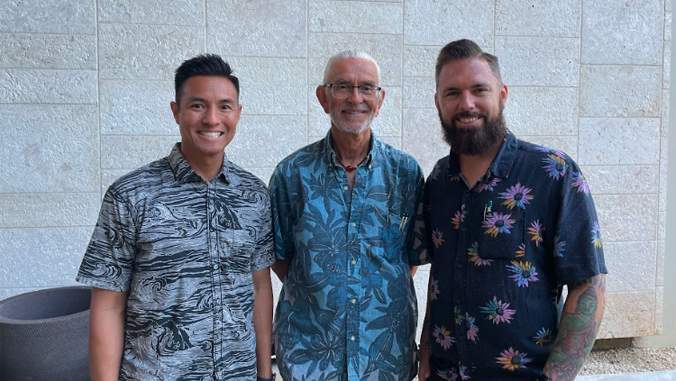
Antibodies are versatile proteins that identify and eliminate microbial invaders, toxins and cancer cells. Monoclonal antibodies (mAbs)—highly purified antibodies developed in laboratories using biotechnology—have played an instrumental role in developing immunotherapies that have curbed the severity or prevented outbreaks of critical illnesses. Since the COVID-19 pandemic, global awareness and understanding of the benefits and potential of antibodies have become commonplace, and the market for antibodies is exponentially growing.
Decades before the COVID-19 pandemic, Kapiʻolani Community College’s Monoclonal Antibody Service Facility and Training Center (MASFTC) had been developing antibodies for public impact research and educational purposes. MASFTC has worked with researchers across the state and the country to develop hundreds of antibodies to support the development of potential immunotherapies for cancer, Zika, COVID-19 and the Ebola virus.
MASFTC has also provided antibodies to illuminate research related to wildlife diseases. In partnership with Thierry Work, wildlife disease specialist and project leader for the National Wildlife Health Center Honolulu Field Station, MASFTC developed mAbs that led to novel discoveries about Hawaiʻi’s endangered green sea turtles.
“As a fundamental tool for biomedical research, we are incredibly fortunate to have a facility in Hawaiʻi that operates as a partner and an engaged, constructive member of Hawaiʻi’s scientific community,” said Work. “I would find it hard to see how we could do some of this specialized research here without them.”
Expanding educational and training opportunities

In 1994, Kapiʻolani CC microbiology Professor John Berestecky expanded the facility into a training center to provide undergraduate and graduate students opportunities to engage in higher level laboratory activities through federal funding. Since then, more than 70 students have graduated from the program into advanced degrees or careers with biotech companies, the Hawaiʻi State Department of Health, clinical diagnostic labs and COVID-19 testing facilities.
“Our hope is to transform MASFTC into a UH core facility to be able to service any UH campus or department as well as other local companies and organizations that need antibody research and development,” said Berestecky. “I’m hoping our efforts allow us to eventually run a research lab to support and develop our antibody therapeutics capacity and initiatives.”
For more on MASFTC, see Noelo’s 2023 story. Noelo is UH’s research magazine from the Office of the Vice President for Research and Innovation.


